Remember the last time you slept like a baby? If you do, you'll also remember how fresh and active you felt the next morning, all charged up, ready to take on the day. This is all thanks to good-quality sleep. In short, how energized you feel during the day is determined by how well you slept the previous night. Yes, the amount of hours along with the quality of sleep is the deciding factor on whether or not you’ll stay awake during that important meeting or if you’ll be able to deliver a creative pitch. If you’re looking to boost your performance at work, you’ve come to the right place. In this blog, we look into how sleep and productivity co-relate and even revealed a few natural sleep remedies that will help you catch some Z’s. Keep scrolling to find out how you can enhance your productivity at work.
Why is Sleep Important? Doesn't Our Body just Shut Down while we are Asleep?
Not really. Your body may be asleep at night, but a lot of functions are still running inside and controlled by the brain.
- Integrating memories: Sleep helps in collecting information during the day and consolidating it into memories at night. Sleep deprivation, on the other hand, impairs the ability to retain information and recall it in the future.
- Processing emotions: When sleep-deprived, you tend to have more mood swings, anxiety and depression, as sound sleep is needed for regulating these emotions.
- Muscle repair: Sleep is essential for muscle recovery and growth. During the deep sleep stage, our pituitary gland releases growth hormone, which stimulates the growth and repair of muscles.
- Maintaining blood pressure: Sleep helps regulate stress hormones, thereby lowering blood pressure. Sleeping for fewer than 6 hours a night can put you at high risk of developing hypertension (high blood pressure).
- Strengthening immunity: There is a reason why your doctor keeps suggesting you take ample rest along with medicines when you fall sick. Sufficient sleep helps you recover faster from an illness if any. Sleep gives your body time to repair and also speeds up immune functions.
- Regulates Leptin and Ghrelin: The two hormones Leptin and Ghrelin are responsible for controlling one’s appetite. Ghrelin’s function is to increase hunger, while leptin is responsible for signaling a feeling of fullness to the brain. Inadequate sleep tends to increase ghrelin levels and decrease leptin levels.
- Regulates Metabolism: The body’s ability to process fats from the bloodstream is affected when you compromise on sleep. Since these fats cannot be metabolized, they are stored as fat deposits, leading to weight gain.
Sleep Hormones and Natural Sleep Aids
It is recommended to have 7-9 hours of sleep per night. Our internal body clock (circadian rhythm) receives signals of light and darkness from our external environment to promote alertness or sleep, respectively. Thus, when it gets dark after sunset, our body starts producing sleep-prompting hormones like melatonin and adenosine. The production of these two sleep hormones gradually increases to help us enter a deep sleep phase. During this phase, our blood vessels relax, lowering our heart rate and breathing. This deep sleep phase is called non-REM sleep when the body releases accumulated toxins and replenishes itself for the next day. Let's try to understand the relationship between these sleep hormones (adenosine and melatonin) and our sleep.
1. Adenosine hormone for sleep
During the day, our body uses many energy resources for functioning and generates waste (toxins) as a byproduct that builds up in the brain. Adenosine is one such byproduct. The more this adenosine is generated in the brain, the more urge we feel to fall asleep due to its effect called "sleep pressure." The reason why caffeine helps you stay awake is that it blocks the adenosine receptors in the brain. A lot of other bodily processes further contribute to this toxin build-up in the brain, which leads to overload and mental exhaustion. This explains why we feel sleepy after a long, hectic day. However, if we sleep well that night, we feel more refreshed later, thanks to our glymphatic system (our body’s internal waste management system). The glymphatic system clears all the built-up waste from the brain with the help of cerebrospinal fluid, which flushes out the toxins. This system is more active when we sleep. Thus, your brain is now refreshed for the next day to take on and process new information. This explains why a good night’s sleep helps you stay focused and alert the next day, while sleep deprivation, slows down your brain and increases your urge to sleep.
2. Melatonin hormone for sleep
Melatonin is a hormone that plays a vital role in inducing sleep. It is our body’s natural sleep remedy. Melatonin is produced inside our brains by the pineal gland. This pineal gland receives signals from the external environment that regulate its production. When darkness starts to prevail after the sun sets, melatonin production is signaled by the pineal gland. Thus, melatonin levels gradually begin to increase, promoting sleep at night. Whereas its production slowly decreases when the pineal gland is exposed to sunlight during the day. This melatonin production can be impaired due to exposure to artificial light or blue light emitted from gadgets, thereby disrupting the body’s circadian rhythm and impacting sleep.
Types of Sleep Disorders
Conditions that affect the quality and duration of one’s sleep are called sleep disorders. On average, adults require 7-9 hours of good quality sleep for staying fit, alert, and active. Although the number of hours one needs for sound sleep may differ from person to person, anything less than 5 to 6 hours of sleep is related to many health complications. Let us get a sneak peek into a few common sleep disorders.
1. Insomnia
The inability to fall or stay asleep despite having the time and desire is called insomnia. It is triggered by old age and people with stress and anxiety. Insomnia can be treated with the help of sleep aids, relaxation techniques, therapy sessions, etc.
2. Sleep Apnea
It is a common sleep-related disorder that obstructs breathing while you sleep. This disorder is triggered when the tissues of the mouth and throat relax frequently, causing blockage of the upper respiratory tract. This occurs due to improper signaling between the brain and the muscles that control breathing. Sleep apnea can be treated by oral appliances, CPAP therapy, and surgeries in certain cases.
3. Shift Work Disorder
Some people whose jobs require them to work late at night or early in the morning, tend to suffer from shift work disorder. Sleeping during the day and working at night may lead to confusion in the body’s circadian rhythm, which regulates the sleep-wake cycle. Circadian rhythm works in response to exposure to light and darkness, inducing sleep or alertness accordingly. Such people struggle to stay alert while working or have a sound sleep during their resting time. Treatment in such cases revolves around strategizing alertness at work and improving sleep quality during resting periods.
4. Hypersomnia
This is a neurological condition where one has an excessive urge to sleep during the day even after a full night’s sleep. People with hypersomnia find it difficult to concentrate on work, school, lectures, meetings, or any social event. This can have a negative impact on their professional and social lives. Treatment for hypersomnia includes improving sleep habits and reducing caffeine and alcohol intake.
5. Chronic Fatigue Syndrome
Also known as post-exertional malaise, this condition is characterized by fatigue lasting longer than six months. People with this syndrome struggle to perform routine activities at work, school, or in their personal lives. There is no cure for CFS, but cognitive behavioral therapy (CBT), good sleep hygiene, exercise habits, and medications in certain cases have been shown to improve symptoms.
How does Sleep Affect your Work Performance?
When we have a deadline, an important presentation, or just excess work, most of us end up staying up the entire night to complete the same. While it gets the work done, we just end up feeling exhausted or drained the next day.
In the age of work pressure, deadlines, and constant stress, you may be finding it difficult to catch up on your sleep or go to bed on time. But in the bargain of giving your best shot, you end up underperforming at work. Sleep deprivation affects learning, mood, reaction time, and memory. Sleeplessness may also cause inflammation, hallucinations, and hypertension; it is also associated with diabetes and obesity, and in severe cases, even death due to stroke. Sleep insufficiency also impairs your cognition, mood, and alertness.
Ways in which Sleep Deprivation can Impact your Work
We all have this notion that if we stay up late at night to complete our work, we will achieve more. The truth is that we end up being less productive the next day, and so begins the vicious cycle that ruins our sleep pattern. We have listed a few ways in which sleep negatively affects your performance at work.
1. Memory
When the brain does not get enough time to process information and store it as memory at night, it can impact both your short-term and long-term memory. Thus, insufficient sleep hinders both the formation of new memories and the recollection of old ones.
2. Focus & Alertness
Sleep insufficiency can lead to decreased alertness, as your mind feels exhausted, as a result of which your work performance suffers. You may be physically present but mentally exhausted. In certain kinds of work profiles, this can be quite dangerous when you are required to stay focused and alert.
3. Decision-making
Sleep deprivation can alter your decision-making ability. Since your brain and body are not fully functional, Adequate sleep can help you see things clearly and weigh the pros and cons before coming to a conclusion.
4. Creativity
Our brain’s creative center is activated when it is fully rested. Many music composers, writers, and artists come up with their best creative ideas while dreaming.
5. Quality of work
Although it’s human nature to make mistakes, our ability to make errors increases twofold with sleep insufficiency. Better sleep helps us focus better, thereby reducing our chances of making errors at work.
6. Mood
No one likes a moody boss or a grumpy employer. Sleep deprivation can make you irritable and impatient. Affecting your communication and leadership skills.
How to Sleep Well to Perform Better at Work
Easier said than done; you may want to go to bed on time, but what if you are simply unable to sleep? In order to get your 7-9 hours of sleep daily, we’ve noted a few natural sleep remedies you can adopt into your daily routine in order to get your much-needed beauty sleep.
1. Reduce Light Exposure
When our brain senses darkness, it triggers the production of melatonin, which induces sleep. When it is exposed to light during the day, the production of melatonin drops, allowing us to enter a state of wakefulness. When we use gadgets like mobile phones or even laptops at night, the blue light confuses our brain, thus lowering melatonin levels. This makes it difficult to fall asleep.
2. Cooler Room Temperature
During sleep, our body temperature tends to drop by a few degrees as our metabolism slows down. This process of regulating body temperature is called thermoregulation. Thus, keeping the temperature of your bedroom lower helps you go to sleep better.
3. Eliminate Clutter
If you have trouble falling asleep, decluttering your bedroom can be of great help. Clutter in our physical environment grabs our attention and may induce stress, thereby negatively impacting the onset of sleep. So next time, make sure to clear the surfaces around your bed and avoid piling up clothes on the chair in the bedroom or storing them behind the doors.
4. Avoid Stimulants
Stimulants are substances that trigger our body and mind to increase alertness and mindfulness. They also tend to increase our blood pressure, heart rate, and breathing rate. Stimulants could be food, medicines, or supplements. The most common food stimulants are tea and coffee, as they contain caffeine. So keep your stimulant intake on the lower side for at least an hour before hitting the bed.
5. Reduce Stress
Your body is exhausted, but your mind is constantly wandering or worrying. Anxiety, depression, tension, and overthinking can hamper your sleep. When under stress, your body produces cortisol, which induces a flight or fight response. This increases blood supply to the brain, increasing heart rate, and raising blood pressure which leads to a state of alertness, thereby delaying the onset of sleep.
6. Watch What You Eat & Drink
Poor eating and drinking habits can impact your quality of sleep. Spicy food, high-protein foods like steak, highly processed or fast foods, and sugary drinks lead to a decrease in sleep quantity. This happens because the body is busy working to digest the foods consumed in high-calorie meals.
Sleep quality and quantity have been observed to improve with an early and light dinner. For better sleep, consume complex carbohydrates before bed, such as whole-wheat toast or a bowl of oatmeal, as these are not only easy to digest but will also trigger the release of serotonin. Avoid spicy foods, tomato sauce, or other acidic foods three hours before bedtime to reduce the chances of heartburn or indigestion. Other foods that contain natural melatonin include fish, nuts like pistachios and almonds, goji berries, and tart cherries.
7. Reduce Daytime Naps
Just like you won't be able to eat a meal if your stomach is already full, you won't be able to sleep on time if you have been taking naps during the day. Make a conscious effort to stay awake during the day, in order to fall asleep at night.
8. Opt For a Warm Shower
Taking a shower, whether warm or cold, may help with sleep onset. A warm bath relaxes the body, and this relaxing effect is beneficial for good sleep. Bathing with warm water causes your body to drop its temperature, cooling the body and promoting sleep.
9. Invest in Supplements
While melatonin is generally produced internally, it can also be supplemented by external sources. Melatonin supplements in strip format have been proven beneficial for people facing sleep disorders. While searching for the best supplements, look for those that have 100% plant-based melatonin benefits and even include ingredients like valerian root so you don't need to worry about side effects like habit-forming.
Valerian root is another natural sleep remedy commonly used in dietary supplements. This root is obtained from the Valerian plant, a herb native to Asia and Europe. Valerian root contains a few important components like iridoids, flavonoids, valerenic acid, lignans, and GABA, which may be responsible for its sleep-inducing benefits. Apart from promoting sleep, valerian root has long been used as a natural remedy for fatigue, headaches, and stomach cramps. Valerian root has anti-inflammatory properties too. These GABA components, specifically those of Valerian root, are thought to ease anxiety, thereby creating a relaxed state of mind and promoting sleep.
Melatonin strips can help anyone, from those who travel frequently for work and face jet lag to overworked moms to night shift workers.
Wrapping Up
Sleep is a biological necessity, not a luxury. Unless we start prioritizing sleep, we won't be able to give our best at work. So pull up your socks, and get enough sleep to stay alert at work. You can get your 7 to 9 hours of deep sleep daily by adopting the above changes and including melatonin strips on days when your sleep cycle is disturbed.
References
Natural Sleep Aids: Home Remedies to Help You Sleep | Johns Hopkins Medicine
How Sleep Works - Why Is Sleep Important? | NHLBI, NIH
Sleep Deprivation and Memory Loss (webmd.com)
How sleep can boost your body's immune response (medicalnewstoday.com)
Sleep Disorders – Common Types, Symptoms, Treatments | Sleep Foundation
Factors Affecting Sleeping Patterns (healthcentre.org.uk)
Why Stress Causes Sleep Disorders - The American Institute of Stress













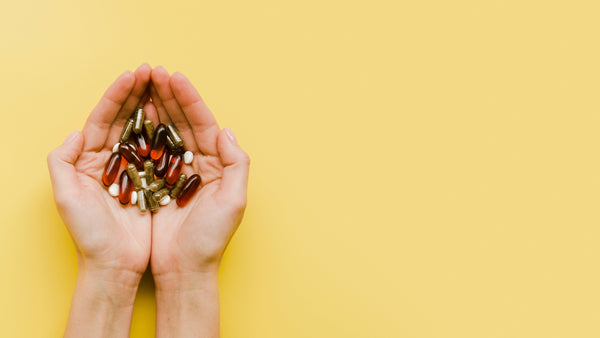
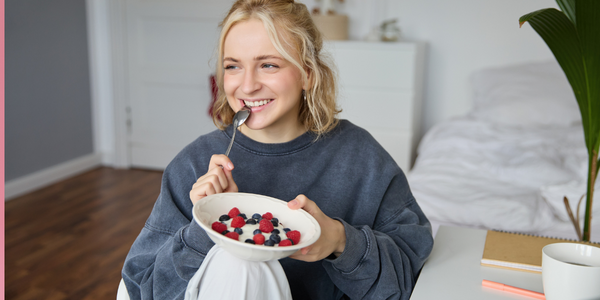

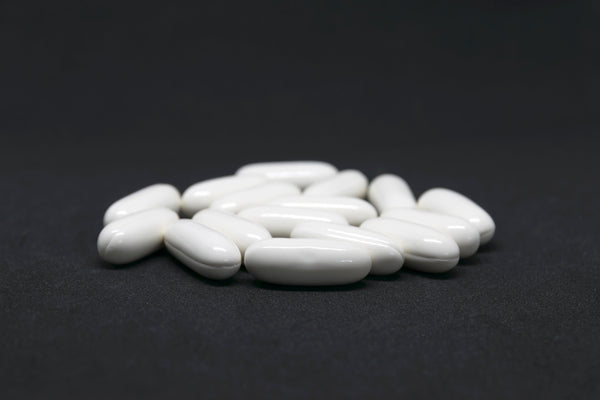
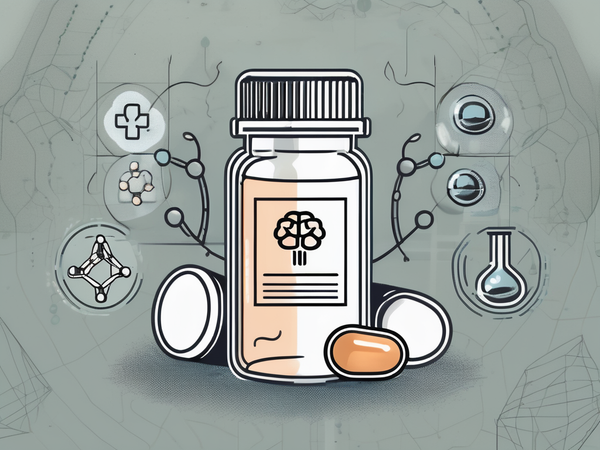

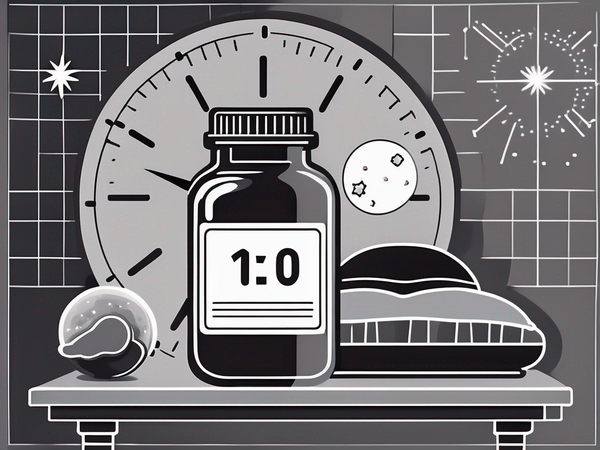
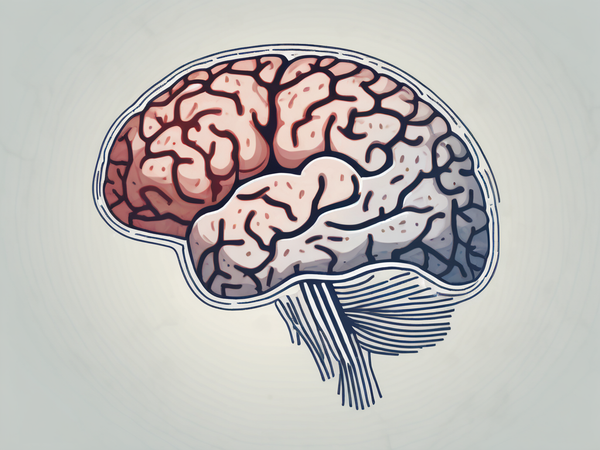






 DOWNLOAD NOW
DOWNLOAD NOW
